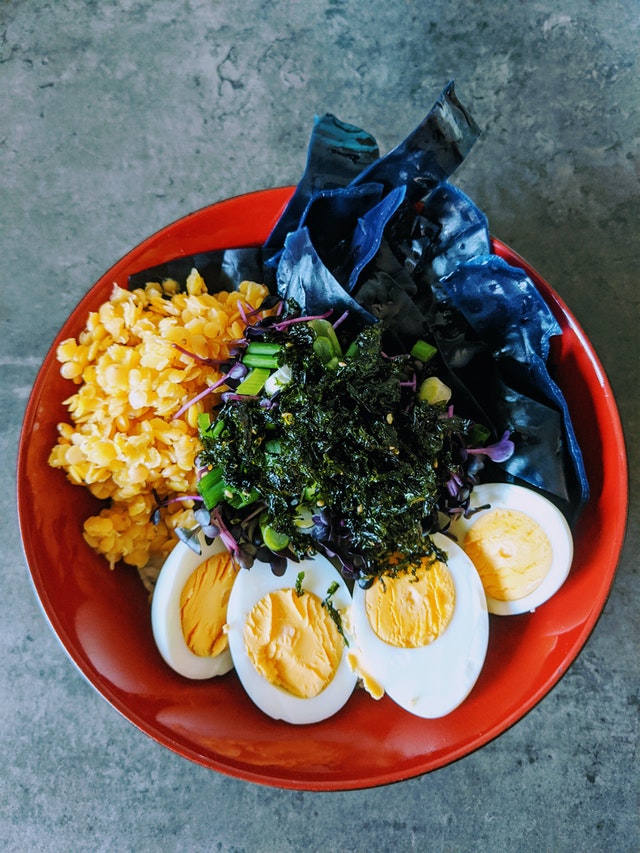
We need to food to survive, but did you know that food can also help you thrive?
One of the simplest ways to protect your health is by being mindful of the food choices you make.
Natural, unprocessed foods, like fresh fruits and vegetables, can offer a holistic way to begin the process of healing your body, increasing your energy, and gaining control of your well-being. Eating a diet rich in fruits, vegetables, and whole grains—including “superfoods”—is one of the easiest ways to improve your health.
The science is clear regarding the benefits of a healthy diet composed mainly of fruits, vegetables, whole grains, leaner proteins, and unsaturated fats. People who eat this way have a lower risk of obesity, stroke, heart disease, diabetes, and many types of cancer. A healthy diet can even improve your sleep and help you feel less stressed and more energized. In sum, it is a powerful tool for overall wellness.
Accessible Popular Superfoods
Superfoods are natural, whole (not processed) foods that are packed with vitamins, minerals, and important molecules such as antioxidants. Antioxidants fight free radicals, which are chemical compounds that are associated with many diseases, including cancer and heart disease. The human body naturally fights free radicals, but antioxidants in foods can aid in this process and help keep levels of free radicals in check.
Keep in mind that “superfood” isn’t a scientific term, and that these foods cannot cure any disease. “Superfood” simply refers to any natural food that is packed with essential nutrients. Any fruit or vegetable will provide essential vitamins, minerals, and antioxidants, but superfoods pack a particularly potent punch.
Some of the most popular superfoods you may have heard of are blueberries, pomegranates, avocado, and quinoa. Let’s take a quick peek to explore some of the benefits of each of these delicious, nutritious foods.
Blueberries
These blue gems of goodness are packed with flavonoids, a type of compound that has antioxidant properties. Blueberries are also full of dietary fiber, manganese, and vitamin K. Dietary fiber can prevent constipation and may reduce the risk of colorectal cancer. It can also help control blood sugar levels, since it slows the body’s absorption of sugars. Manganese is an essential nutrient that assists with the body’s metabolism and is part of an antioxidant enzyme. Vitamin K, meanwhile, plays a key role in blood clotting.
Aside from their health benefits, blueberries are also naturally sweet and can be found all year round in most grocery stores. They make for a quick, easy snack, too. A blueberry bush could even be a great addition to a city patio or backyard garden.
Avocado
Creamy and decadent, these fruits are a wonderful weight-loss aid. Packed with polyunsaturated and monounsaturated fats, which are better for your heart than other kinds of fats, avocados are filling and can help prevent cravings for buttery, fatty foods. They are also full of B vitamins, which are necessary for the body’s creation of red blood cells, and magnesium, which helps regulate blood pressure and blood sugar. Some studies have shown that replacing saturated fats (those from animals, like butter) with the healthier fats in avocados can help reduce the risk of heart disease.
Pomegranate
This vibrantly colored, ancient fruit (technically a berry) has been hailed for its anti-inflammatory properties. Pomegranate contains high levels of the antioxidant compounds called punicalagins—in some studies, researchers estimated that pomegranate has three times the antioxidant power as red wine and green tea. This fruit boasts a load of other important vitamins as well, particularly vitamin C and vitamin K. Eating the seeds over a protein-packed yogurt is a delicious, naturally sweet breakfast or snack. Pomegranate can be consumed as juice as well, for a quicker option on the go.
Quinoa
Quinoa is technically a seed, not a grain—it is biologically related to spinach and amaranth. However, it’s often treated as a whole grain due to how it looks, how it can be cooked and eaten, and its many healthy properties. Low on the glycemic index, quinoa contains more complex carbohydrates than your typical white rice or potato. It also features all nine amino acids and loads of magnesium. In addition, plant-based protein is what sets quinoa apart from other grains. For this reason, quinoa is often recommended to vegans and vegetarians interested in non-animal sources of protein. It has a slightly chewy texture and an earthy, nutty taste like brown rice, but more pronounced.
Conclusion
Eating healthy is one of the best things that you can do for your body and mind. A diet rich in whole, natural, unprocessed foods is one of the best ways to reduce your risk of disease and live a healthier, happier life. Best of all, you don’t need to compromise taste to do so.